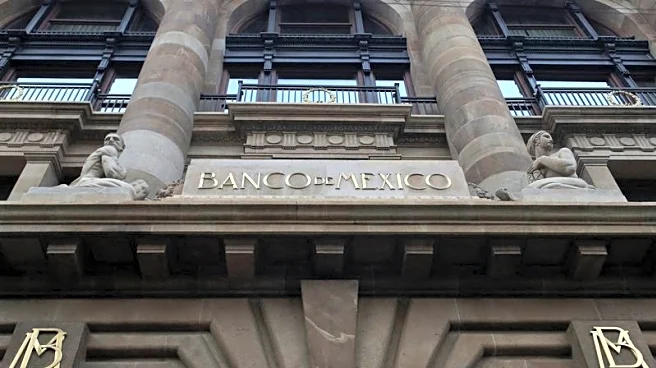What's Happening?
President Trump is preparing alternative strategies for imposing tariffs if the Supreme Court rules against his current tariff policy. Trump has expressed concerns that a negative ruling could be devastating for the United States, potentially leaving
the country defenseless and at risk of economic decline. Despite these concerns, Trump has several options available under existing trade laws. These include Section 301 of the Trade Act of 1974, which allows tariffs on nations with discriminatory trade practices, and Section 232 of the Trade Expansion Act of 1962, which permits tariffs on imports threatening national security. Additionally, Trump could consider Section 338 of the Tariff Act of 1930, allowing tariffs up to 50% without investigation. These measures reflect Trump's determination to continue reshaping global commerce through tariffs.
Why It's Important?
The potential Supreme Court decision on Trump's tariff powers is significant for U.S. trade policy and international relations. If the court limits Trump's current approach, it could impact the administration's ability to unilaterally impose tariffs, affecting industries reliant on imports and exports. Trump's alternative strategies, if implemented, could lead to increased trade tensions and affect global markets. Industries such as steel, aluminum, and automotive may face uncertainty, influencing business operations and economic stability. The broader implications include potential shifts in trade alliances and economic strategies, as countries respond to U.S. tariff policies.
What's Next?
If the Supreme Court rules against Trump's tariff powers, the administration may quickly implement alternative measures under existing trade laws. This could lead to new tariffs and trade policies, prompting reactions from affected industries and international trade partners. Businesses may need to adjust their strategies to navigate potential changes in import costs and market access. Political leaders and trade experts will likely engage in discussions to assess the impact of these policies and explore diplomatic solutions to mitigate trade tensions.
Beyond the Headlines
The ongoing debate over tariff powers highlights broader issues of presidential authority and economic policy. Legal and ethical considerations may arise regarding the use of historical trade laws to address modern economic challenges. The situation underscores the complexity of balancing national security interests with global trade dynamics, potentially influencing future legislative and judicial decisions on trade policy.

















